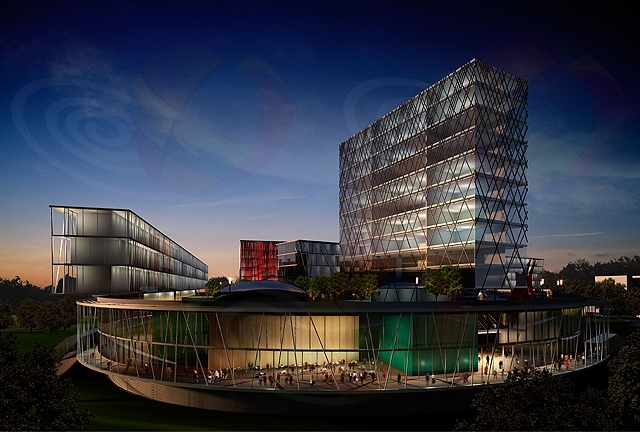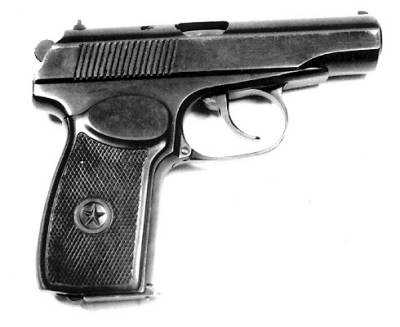|
Yukhari Govhar Agha Mosque
Yukhari Govhar Agha Mosque ( az, Yuxarı Gövhər Ağa məscidi, Armenian: վերին մզկիթ) is a mosque located in the city of Shusha, Azerbaijan, in the disputed region of Nagorno-Karabakh. The mosque also bears the name ''Boyuk Juma'' (Great Mosque) of Govhar Agha ( az, Gövhər Ağanın Cümə məscidi). History The Yukhari Govhar Agha means "The Upper Govhar Agha Mosque" in Azerbaijani, referring to the location of the mosque in the upper section of Shusha town and to distinguish it from the Ashaghi Govhar Agha Mosque, the same-name mosque located in the lower section of the town. Both mosques are considered symbols of Shusha and masterpieces of Eastern architecture. The Yukhari Govhar Agha Mosque is located on Shusha's main square, Yusif Vazir Chamanzaminli street and makes up a big part of the architectural complex including madrasa, shops, and houses built by the same architect. According to historian and author of "Karabakh-name", Mirza Jamal Karabakhi, constr ... [...More Info...] [...Related Items...] OR: [Wikipedia] [Google] [Baidu] |
Islam
Islam (; ar, ۘالِإسلَام, , ) is an Abrahamic religions, Abrahamic Monotheism#Islam, monotheistic religion centred primarily around the Quran, a religious text considered by Muslims to be the direct word of God in Islam, God (or ''Allah'') as it was revealed to Muhammad, the Muhammad in Islam, main and final Islamic prophet.Peters, F. E. 2009. "Allāh." In , edited by J. L. Esposito. Oxford: Oxford University Press. . (See alsoquick reference) "[T]he Muslims' understanding of Allāh is based...on the Qurʿān's public witness. Allāh is Unique, the Creator, Sovereign, and Judge of mankind. It is Allāh who directs the universe through his direct action on nature and who has guided human history through his prophets, Abraham, with whom he made his covenant, Moses/Moosa, Jesus/Eesa, and Muḥammad, through all of whom he founded his chosen communities, the 'Peoples of the Book.'" It is the Major religious groups, world's second-largest religion behind Christianity, w ... [...More Info...] [...Related Items...] OR: [Wikipedia] [Google] [Baidu] |
Mosque
A mosque (; from ar, مَسْجِد, masjid, ; literally "place of ritual prostration"), also called masjid, is a place of prayer for Muslims. Mosques are usually covered buildings, but can be any place where prayers ( sujud) are performed, including outdoor courtyards. The first mosques were simple places of prayer for Muslims, and may have been open spaces rather than buildings. In the first stage of Islamic architecture, 650-750 CE, early mosques comprised open and closed covered spaces enclosed by walls, often with minarets from which calls to prayer were issued. Mosque buildings typically contain an ornamental niche ('' mihrab'') set into the wall that indicates the direction of Mecca (''qiblah''), Wudu, ablution facilities. The pulpit (''minbar''), from which the Friday (jumu'ah) sermon (''khutba'') is delivered, was in earlier times characteristic of the central city mosque, but has since become common in smaller mosques. Mosques typically have Islam and gender se ... [...More Info...] [...Related Items...] OR: [Wikipedia] [Google] [Baidu] |
1768 Establishments In Asia
Events January–March * January 9 – Philip Astley stages the first modern Circus (performing art), circus, with acrobatics, acrobats on galloping horses, in London. * February 11 – Samuel Adams's Massachusetts Circular Letter, circular letter is issued by the Massachusetts House of Representatives, and sent to the other Thirteen Colonies. Refusal to revoke the letter will result in dissolution of the Massachusetts Assembly, and (from October) incur the institution of martial law to prevent civil unrest. * February 24 – With Russian troops occupying the nation, opposition legislators of the national legislature having been deported, the government of Poland signs a treaty virtually turning the Polish–Lithuanian Commonwealth into a protectorate of the Russian Empire. * February 27 – The first Secretary of State for the Colonies is appointed in Kingdom of Great Britain, Britain, the Wills Hill, 1st Marquess of Downshire, Earl of Hillsborough. * ... [...More Info...] [...Related Items...] OR: [Wikipedia] [Google] [Baidu] |
Shia Mosques In Azerbaijan
Shīʿa Islam or Shīʿīsm is the second-largest branch of Islam. It holds that the Islamic prophet Muhammad designated ʿAlī ibn Abī Ṭālib as his successor (''khalīfa'') and the Imam (spiritual and political leader) after him, most notably at the event of Ghadir Khumm, but was prevented from succeeding Muhammad as the leader of the Muslims as a result of the choice made by some of Muhammad's other companions (''ṣaḥāba'') at Saqifah. This view primarily contrasts with that of Sunnī Islam, whose adherents believe that Muhammad did not appoint a successor before his death and consider Abū Bakr, who was appointed caliph by a group of senior Muslims at Saqifah, to be the first rightful (''rāshidūn'') caliph after Muhammad. Adherents of Shīʿa Islam are called Shīʿa Muslims, Shīʿītes, or simply Shīʿa or Shia. Shīʿa Islam is based on a ''ḥadīth'' report concerning Muhammad's pronouncement at Ghadir Khumm.Esposito, John. "What Everyone Needs to Know ... [...More Info...] [...Related Items...] OR: [Wikipedia] [Google] [Baidu] |
Mosques In Shusha
A mosque (; from ar, مَسْجِد, masjid, ; literally "place of ritual prostration"), also called masjid, is a place of prayer for Muslims. Mosques are usually covered buildings, but can be any place where prayers (sujud) are performed, including outdoor courtyards. The first mosques were simple places of prayer for Muslims, and may have been open spaces rather than buildings. In the first stage of Islamic architecture, 650-750 CE, early mosques comprised open and closed covered spaces enclosed by walls, often with minarets from which calls to prayer were issued. Mosque buildings typically contain an ornamental niche (''mihrab'') set into the wall that indicates the direction of Mecca (''qiblah''), ablution facilities. The pulpit (''minbar''), from which the Friday (jumu'ah) sermon (''khutba'') is delivered, was in earlier times characteristic of the central city mosque, but has since become common in smaller mosques. Mosques typically have segregated spaces for men and w ... [...More Info...] [...Related Items...] OR: [Wikipedia] [Google] [Baidu] |
18th-century Mosques
The 18th century lasted from January 1, 1701 ( MDCCI) to December 31, 1800 ( MDCCC). During the 18th century, elements of Enlightenment thinking culminated in the American, French, and Haitian Revolutions. During the century, slave trading and human trafficking expanded across the shores of the Atlantic, while declining in Russia, China, and Korea. Revolutions began to challenge the legitimacy of monarchical and aristocratic power structures, including the structures and beliefs that supported slavery. The Industrial Revolution began during mid-century, leading to radical changes in human society and the environment. Western historians have occasionally defined the 18th century otherwise for the purposes of their work. For example, the "short" 18th century may be defined as 1715–1789, denoting the period of time between the death of Louis XIV of France and the start of the French Revolution, with an emphasis on directly interconnected events. To historians who expand ... [...More Info...] [...Related Items...] OR: [Wikipedia] [Google] [Baidu] |
Mosques Completed In 1885
A mosque (; from ar, مَسْجِد, masjid, ; literally "place of ritual prostration"), also called masjid, is a Place of worship, place of prayer for Muslims. Mosques are usually covered buildings, but can be any place where prayers (sujud) are performed, including outdoor courtyards. The first mosques were simple places of prayer for Muslims, and may have been open spaces rather than buildings. In the first stage of Islamic architecture, 650-750 CE, early mosques comprised open and closed covered spaces enclosed by walls, often with minarets from which Adhan, calls to prayer were issued. Mosque buildings typically contain an ornamental niche (''mihrab'') set into the wall that indicates the direction of Mecca (''qiblah''), Wudu, ablution facilities. The pulpit (''minbar''), from which the Friday (jumu'ah) sermon (''khutba'') is delivered, was in earlier times characteristic of the central city mosque, but has since become common in smaller mosques. Mosques typically have Isl ... [...More Info...] [...Related Items...] OR: [Wikipedia] [Google] [Baidu] |
Friday Prayer
In Islam, Friday prayer or Congregational prayer ( ar, صَلَاة ٱلْجُمُعَة, ') is a prayer ('' ṣalāt'') that Muslims hold every Friday, after noon instead of the Zuhr prayer. Muslims ordinarily pray five times each day according to the sun's sky path regardless of time zones. ''Jumu’ah'' means Friday in the Arabic language. In many Muslim countries, the weekend is inclusive of Fridays, while in others, Fridays are half-days for schools and some workplaces. Meaning It is one of the most exalted Islamic rituals and one of its confirmed obligatory acts. Obligation There is consensus among Muslims regarding the Friday prayer (''salat al-jum‘ah'') being ''wajib'' - required - in accordance with the Quranic verse, as well as the many traditions narrated both by Shi’i and Sunni sources. According to the majority of Sunni schools and some Shiite jurists, Friday prayer is a religious obligation, but their differences were based on whether its obligation is condit ... [...More Info...] [...Related Items...] OR: [Wikipedia] [Google] [Baidu] |
Ruben Vardanyan (businessman)
Ruben Karlenovich Vardanyan (, ; born May 25, 1968) is a Russian-Armenian politician who has served as the State Minister of Artsakh, an unrecognized state in the South Caucasus, since November 4, 2022. Prior to his political career, Vardanyan was a businessman and philanthropist. He is the former chief executive officer and shareholder of the Troika Dialog investment bank. Early life and education Ruben Vardanyan was born on 25 May 1968, in Yerevan. In 1985 he graduated with honours from Yerevan School No. 35. In 1985, he enrolled in Moscow State University's Faculty of Economics. After completing his first year, he did military service in Soviet Azerbaijan and Armenia. In 1992 he graduated with honours from the Faculty of Economics. Vardanyan was trained at Cassa di Risparmio di Torino Italian savings bank in Turin and completed a course on developing markets at Merrill Lynch in New York in 1992. Later, he completed short-term courses at INSEAD ( Fontainebleau, France, 2 ... [...More Info...] [...Related Items...] OR: [Wikipedia] [Google] [Baidu] |
Nagorno-Karabakh Defense Army
The Artsakh Defence Army ( hy, Արցախի Հանրապետության պաշտպանության բանակ, Artsakhi Hanrapetut’yan pashtpanut’yan banak) is the defence force of the breakaway Republic of Artsakh (Nagorno-Karabakh). Established in 1992, it united previously disorganized self-defence units which were formed in the early 1990s with the goal of protecting the ethnic Armenian population of Artsakh from attacks by Soviet and Azerbaijani armed forces. History Establishment The Artsakh Defence Army was founded on 9 May 1992. It created "its own central command and military structure distinct from the Armenian Army." Its founders included Robert Kocharyan (the former President of Armenia, he was the first commander-in-chief of the Army); Serzh Sargsyan (former Prime Minister and President of Armenia); Vazgen Sargsyan (Armenia's Defence Minister 1992–93, State Minister in Charge of defence 1993–95, Armenia's Prime Minister 1998–99); Monte Melkonian (resp ... [...More Info...] [...Related Items...] OR: [Wikipedia] [Google] [Baidu] |
Capture Of Shusha
The Battle of Shusha) and by Azerbaijanis as the Occupation of Shusha ( az, Şuşanın işğalı) was the first significant military victory by Armenian forces during the First Nagorno-Karabakh War. The battle took place in the strategically important mountain town of Shusha on the evening of May 8, 1992, and fighting swiftly concluded the next day after Armenian forces captured it and drove out the defending Azerbaijanis. Armenian military commanders based in Nagorno-Karabakh's capital of Stepanakert had been contemplating capturing the town after Azerbaijani shelling of Stepanakert from Shusha for half a year had led to hundreds of Armenian civilian casualties and mass destruction in Stepanakert. The capture of the town proved decisive. Shusha was the most important military stronghold that Azerbaijan held in Nagorno-Karabakh – its loss marked a turning point in the war, and led to a series of military victories by Armenian forces in the course of the conflict. Backgroun ... [...More Info...] [...Related Items...] OR: [Wikipedia] [Google] [Baidu] |

.jpg)






